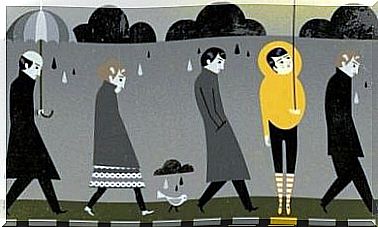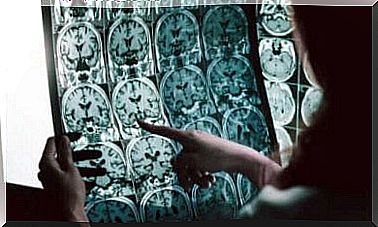Depression: The Hardest Part Is Getting Up In The Morning

Say “I can not get up in the morning” to a psychologist, then he will know that this may be due to depression. But in the eyes of others at work, by friends or even family, this can be interpreted as laziness, apathy or an excuse to escape from personal or work-related responsibilities.
We will explain more about that now.

Good morning depression, then you’re here again
Andrea is 46 years old and right now she is experiencing another depressive episode. Although two years ago she was able to resist it, thanks to medication and psychotherapy.
She noted that it was back, for a very specific reason. It was constantly getting harder for her to get up in the morning. Her energy left her every day, so she became apathetic and negative until she finally had to admit it. The depression had returned.
This known enemy tends to get worse in the early hours, for these reasons:
- It is characterized by waking up full of negative emotions, discouraged and enormously physically tired. These symptoms generally slowly get better as the day goes on.
- As several studies explain, most people with depression have altered circadian rhythms. Hormones like melatonin are released in smaller amounts or at the wrong time. This causes the depressed person to suffer from any insomnia or fatigue during the day.
- This change in the depressed person’s circadian rhythm can also make them feel colder in the morning. They may have low or non-existent energy and even be unable to respond to certain stimuli due to their low level of alertness.
We should add another factor to this. It is the clear feeling of not feeling satisfied with the day that has just begun. This defenselessness and assurance that we are not capable of fulfilling our responsibilities will only contribute to the feeling that we are completely losing control of our lives.

This is how you confront the most difficult time of the day
Let’s return to our main character, Andrea. She is the woman who is again suffering from depression after she had hoped it was a chapter over. Although depression is an old “friend”, she does not hesitate to return to her specialist to see which prescriptions can be helpful.
Let’s look at them now.

Guidelines for meeting morning symptoms of depression
Above all, it is important to keep in mind that both interpersonal therapy and cognitive therapy can be hugely useful.
Our main character also decides to go to his doctor to get some tests done. She is aware that things like her thyroid gland, a low level of vitamin B12 or even a liver problem can aggravate this lack of energy in the morning.
- Then she begins a routine where she starts with morning stretches. As soon as she gets up, she performs 10 minutes of light yoga exercises in her room.
- After that, she forces herself to take a shower and get dressed.
- What follows is as simple as it is therapeutic. Andrea needs to call someone every morning to get in a better mood and get the energy and willpower up. In her case, it’s her mother. For you, it might be a brother or sister or a mentor who can motivate you.
- Then Andrea eats breakfast in peace and quiet, without rushing. She almost never feels like it, but forces herself to do so because she knows her brain needs the energy it provides in the morning.
Last but not least, she sets aside time to meditate. 15 or 20 minutes is ample. It’s a special time to connect with yourself so you can process your thoughts and negative emotions a little better.
By doing this, Andrea gets a little more peace and motivation. She uses it to meet today’s challenges a little better.
These simple tips can also be of great help to you.









